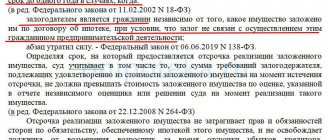When bankruptcy of citizens was just about to be introduced in 2015, many people with debts, be it a mortgage or a lot of consumer loans, had a false feeling that, they say, “they will accept the bankruptcy of citizens - all debts will be written off.”
People firmly believed that all problems would somehow be solved on their own - as soon as amendments to the law came into force. The reality turned out to be much more prosaic. Ignorance of the specifics of the procedure, which was overly complicated by the legislator (although it is simpler than bankruptcy of legal entities), and the lack of established practice, often led to mistakes, the consequences of which were to obtain a result that was not what was originally expected.
So, a simple example. Errors in the application or incorrectly drawn up documents can lead to the fact that a person is not assigned the desired debt restructuring, sending him to sell his property. Or let’s take the situation before the start of the procedure and move forward to the moment when the person is just receiving a loan. The so-called “certificate in the form of a bank”, showing unofficial income, can also do a disservice in the future, sending a person to sell property.
How can you go through the procedure and try to achieve the result you want, and not the one you get? Let's look at the procedure step by step.
Who is eligible for personal bankruptcy?
According to the definition from Law 127-FZ “On Insolvency and Bankruptcy” , bankruptcy is the inability of the debtor to fully satisfy the demands of creditors. According to the letter of the law, this inability occurs when, after paying all obligations, the debtor is left with less than the subsistence level for each family member.
A paradoxical situation is emerging in Russia: many citizens are, in fact, bankrupt, but do not know about it, continuing to pay their debts in good faith.
In order to successfully complete the bankruptcy procedure, you must meet several criteria:
- Conscientiousness.
- Loan payments must be made in full for at least three months
- The amount of debt must be more than 500,000 rubles.
- You have not sold property for three years.
Good faith is a key concept in bankruptcy proceedings. It will not be possible to collect loans from different banks for millions of rubles, and then write them off in a legal way. During the procedure, you must show that having taken out a loan for certain purposes, you planned to repay it, and had such an opportunity, but as a result of the current circumstances, you are no longer able to service your obligations.
In fact, currently the courts accept smaller amounts for consideration, for example 300,000 rubles.
Here we are talking about property that can be described in the bankruptcy sale procedure: apartments, cars, land plots, etc. Such transactions can be challenged during the procedure only if the money from the sale was not distributed among creditors.
Get a free consultation
Disadvantages of bankruptcy of a citizen
There are a number of disadvantages to the procedure, so you should think several times before entering into it.
So:
- Transactions for the last three years may be challenged if the financial the manager will suspect that there is a fact of withdrawal of property. For example, the debtor had several apartments, he sold them for next to nothing to a relative.
- Control by the financial manager over the bank accounts and cards of the debtor.
- Control over the disposal of property by the financial manager.
- The court may apply a measure in the form of a ban on leaving the country.
In addition, if a person is declared bankrupt (as a result of the sale of property or as a result of a simplified procedure), there are a number of consequences:
- Within 5 years you will have to indicate bankruptcy when taking out loans.
- If there was a sale of property, you cannot re-file for bankruptcy against yourself for 5 years. But creditors can file.
- You cannot be a participant or director of a legal entity for 3 years.
- You cannot participate in the management of a credit institution for 10 years.
- For 5 years you cannot participate in the management of an MFO, NPF, or insurance company.
- You cannot re-register as an individual entrepreneur for 5 years.
In fact, these disadvantages are not as burdensome as they might seem. Financial protection "Bankirro" knows how to free you from debt. We will be happy to tell you how these disadvantages are offset by the advantages of going through the personal bankruptcy procedure. And we will take on all the difficulties of the procedure.
Participants in bankruptcy proceedings:
There are two main parties involved in bankruptcy proceedings: the debtor and the creditor.
. Their goals differ: the creditor wants to receive compensation for the issued loan and, preferably, with interest. The debtor wants to get rid of the credit burden and the accompanying “joys” of enforcement proceedings, pressure from collectors and banking services.
The main government body in bankruptcy proceedings is the Arbitration Court
. It is the judge who decides whether a citizen will become bankrupt or not. However, if a person honestly paid his debts, but due to force majeure circumstances was unable to service his obligations, the court will definitely take his side.
The definition of “good faith of the debtor” is a fundamental element of the bankruptcy procedure from the point of view of the court: if the debtor is acting out in the procedure, hiding income or property, has the ability to pay the loan, but does not want to do so, it will most likely not be possible to write off the debts.
The arbitration manager is responsible for determining the debtor’s income and property. This is a kind of intermediary between the creditor and the debtor, who must ensure that the rights of both participants in the procedure are not infringed.
Who is a financial manager
A financial manager is an arbitration manager specifically for participation in bankruptcy cases of individuals. He is appointed by the court for mandatory participation in the case. Without a financial manager, only simplified bankruptcy of individuals takes place, but there he is not needed.
The financial manager does the following:
- identifies the property, income, non-property rights of the debtor and collects them into the bankruptcy estate;
- performs financial analysis;
- maintains a register of creditors and notifies them of the holding of a meeting of creditors;
- identifies signs of deliberate or fictitious bankruptcy;
- controls the debtor's expenses;
- challenges the debtor's transactions over the past three years if there is a suspicion that they are contestable.
Essentially, this is the executive branch. The legislative branch will be the meeting of creditors, and the judicial branch will be the court.
By the way, creditors are very often the same people, with their own shortcomings. It is better to cope with moral and psychological pressure with the support of professionals. "Bankirro" guarantees the return of funds in the contract. We have handled more than 6,000 cases.
How the bankruptcy procedure for an individual works: step-by-step instructions 2021
Depending on the specific situation, the bankruptcy procedure may vary slightly, but the basic steps that a citizen must take to write off his debts remain the same:
- Free consultation
with a lawyer from Bankrot-Service - Collection of documents
- Drawing up an application
- Filing an application to court
At this stage, we analyze your financial situation and determine whether, according to the law, you can apply for debt write-off through bankruptcy (not all debts can be written off, which was discussed a little higher)
In order for the bankruptcy procedure of an individual to be successful, documents are collected, which will then be attached to the application for filing with the court. We will publish the list of documents in a separate article. Documents can be collected both by the debtor himself and by Bankrupt Service specialists
A correctly drawn up application is the key to successful debt write-off during bankruptcy proceedings for an individual. The application must describe your financial situation and convincingly state the reasons why you were unable to service your obligations to creditors.
From this stage, the actual bankruptcy procedure for an individual begins. The court considers the application and documents that you provided. At the first meeting, the court makes a decision to declare you bankrupt and appoints an arbitration manager, who then manages the further procedure.
The most important thing is that already at this stage, even though the debts have not yet been written off, creditors and collectors should no longer bother you, enforcement proceedings are terminated. All further communication with the opposing party to the process takes place through the arbitration manager.
In the future, the bankruptcy procedure for an individual develops depending on the decision made by the court: this may be a debt restructuring procedure, or a procedure for the sale of property.
- 4.1 In the debt restructuring procedure, you will be able to repay your obligations on preferential terms.
- 4.2 In the property sale procedure, your large property will be sold, and the money will be used to repay the loan. You should not be afraid of the procedure for selling property: if it is assigned, you are protected by law. For example, it is impossible to take away your only housing, household or production assets by law!
Whether it makes financial sense for you to go bankrupt is quite easy to calculate, and we will definitely write about this on our blog.
Each of these procedures usually lasts six months. Some courts choose one option, but it happens that the bankrupt is transferred from one procedure to another.
- Decision to write off debts.
After the successful completion of the restructuring procedures or sale of property, the last court hearing takes place, at which a decision is made to write off all debts from you. After receiving this decision, you are officially freed from all debt obligations, and can continue to live a life free from calls from banks and threats from debt collectors.
Get a free consultation
Where to file for bankruptcy
An application for bankruptcy of a citizen must be submitted to the arbitration court. The court will check the validity of the application and make a ruling. There are three options:
- the statement is justified, and there will be two options, more about them below.
- the application remains without progress (they forgot to indicate something or attach the required document);
- the application is rejected as unfounded, since the indicated signs of bankruptcy do not correspond to reality (well, the person wanted to get out of debt, but he has no signs of bankruptcy).
If the application is justified, the following options are possible:
- debt restructuring - if the entire procedure was completed without errors, and the debtor has a stable income that allows him to pay off the debt gradually.
- sale of property - the debtor has at least some property that is sold at auction, debts are paid off proportionally. This is the only outcome of the procedure when the debtor is declared bankrupt.
- a settlement agreement can be concluded at any time.
Separately, it is worth talking about bankruptcy for that category of debtors who have nothing at all, no property, no income that allows them to pay off their debts. It is called “out-of-court bankruptcy.”
Here you will need a decree from the bailiff about the impossibility of collection. A person applies to the MFC with it, and ultimately receives debt write-off and bankruptcy status.
Lawyer in bankruptcy proceedings of an individual
A lawyer in the bankruptcy procedure of an individual performs an important function: having experience in hundreds of bankruptcy procedures, he can analyze the current situation, make a forecast about whether your debts will be written off through the bankruptcy procedure, and whether there are any circumstances that may prevent a positive outcome of the procedure?
The lawyer will also help with collecting the necessary documents and competently draw up an application to submit to the court, select a good arbitration manager, accompany you during the bankruptcy procedure and provide legal support in case of violation of your rights by creditors.
Of course, hiring a lawyer to carry out the bankruptcy procedure is not at all necessary: the law allows you to go bankrupt on your own, but if you do not have the necessary legal knowledge, we still recommend turning to professionals.
Pros and cons of declaring an individual bankrupt
Before filing for judicial or extrajudicial bankruptcy, you should learn about the advantages and disadvantages of the procedure. Let's start with the pros:
- The essence of Law No. 127-FZ is complete elimination of debts. After bankruptcy, the debtor is guaranteed to get rid of them, which is the main advantage of the procedure. In out-of-court bankruptcy, only the debts specified in the application will be written off;
- Bankruptcy status does not mean that an individual will not be able to count on receiving loans in the future. It is possible to get a loan after bankruptcy, and banks look at clients with this status more favorably than at regular defaulters - in the coming years, such borrowers will not be able to legally write off new debts.
- From the moment the application is submitted, collectors and bailiffs have no right to disturb the debtor. The validity of all executive documents is also suspended and the amount of debts is frozen.
Let's talk about the cons
financial insolvency:
- bankruptcy conditions imply the imposition of restrictions on the bankrupt. During the procedure, debtors lose the ability to dispose of their funds and property. All operations are carried out exclusively with the consent of the financial manager. But an amount of at least the monthly subsistence level in the region for the debtor and his family members is guaranteed to him by law - no one has the right to take it away;
- travel abroad may be prohibited by decision of the arbitration court; however, an experienced bankruptcy lawyer can remove this restriction;
- The credit history will be supplemented with an insolvency record. But a bankruptcy record is better than a mass of writs of execution and a completely ruined credit rating with the risk of the debtor being blacklisted as defaulters.
Compared to multimillion-dollar debts, which can only be gotten rid of through personal bankruptcy, the cost of the procedure (about 150-200 thousand rubles) is not that big. This is a payment for your own peace of mind and getting rid of debts.
With out-of-court bankruptcy, the costs will be much lower. But it is not advisable to submit an application to the MFC without the advice and assistance of a lawyer. You may make mistakes that will lead to the return of documents and refusal to write off debts.
You can consult on insolvency issues and find out how to legally write off an overdue loan from the lawyers of our company, by calling us by phone or writing online. We will help you get rid of debts quickly and legally!
We will write off debts with a guarantee
Our lawyer will call you in a few minutes and answer all your questions
our team
Vladislav Kvitchenko
CEO

Tatiana Smirnova
Senior bankruptcy lawyer persons
- Grigory Nechaev
Bankruptcy lawyer persons
- Oleg Martin
Financial analyst
- Yaroslav Mitkov
Junior bankruptcy lawyer persons
FAQ
- Do I need to close my sole proprietorship before bankruptcy?
If possible, we recommend that you stop registering as an individual entrepreneur before filing for bankruptcy. This will avoid the 5-year restriction on re-opening an individual entrepreneur after bankruptcy. However, we recommend not to take any action before bankruptcy of an individual entrepreneur without the consent of lawyers. - Is it possible to preserve property during bankruptcy?
The degree to which a debtor's assets are preserved during bankruptcy depends on many factors. The main ones are the debtor’s income level and the presence of collateral, that is, issued car loans or mortgages. If the debtor decides to write off all debts, then he will have to sacrifice part of his property.
The list of assets that will remain at the disposal of the debtor directly depends on how thoroughly and correctly the preparation for the bankruptcy procedure is carried out. To develop a profitable bankruptcy strategy, we recommend contacting lawyers.
- Will I have to personally participate in court proceedings?
If the debtor goes bankrupt with the help of our lawyers, participation in this procedure is reduced to a minimum. The debtor can freely deal with personal affairs, while our lawyers will be busy protecting his interests, including at court hearings. It is not necessary to attend court hearings.
- Is it possible to write off all debts through bankruptcy?
Much depends on the type of debt. Loan payments will be written off in full. At the same time, the form of the loan and the legal status of the creditor do not matter - our clients successfully get rid of even debts on receipts. But in bankruptcy, alimony, payments affecting the identity of creditors (compensation for harm and others), unpaid wages and subsidiary liability are not written off.
What is a turnkey bankruptcy procedure?
Turnkey bankruptcy is a comprehensive service that is provided. It includes full support of the bankruptcy procedure:
It is also worth noting that we provide a guarantee of successful completion of the bankruptcy procedure for an individual and complete write-off of all debts.
Get a free consultation
Video on the topic
Bankruptcy of individuals
Author:
Vladislav Kvitchenko
CEO . Practicing lawyer in the field of bankruptcy of individuals. persons Since 2015, she has been successfully handling insolvency cases. Vladislav is brilliantly versed in bankruptcy law, gives expert comments on legal situations and actively publishes in specialized publications.
Cost of bankruptcy procedure for an individual
The cost of bankruptcy, first of all, depends on the costs that will have to be incurred for the procedure itself:
- Arbitration court deposit, which is paid for each procedure, and there may be several during bankruptcy
- Mandatory publications about the procedure
- Publication of entries in the bankruptcy register
- Postage.
We have listed only the main cost items for the bankruptcy procedure, the total amount is from 40 to 80 thousand rubles, excluding the assistance of a lawyer.
The bankruptcy procedure for an individual is a well-developed and understandable legal procedure, the course of which is quite easy for a person with experience to predict. If you have problems with debts, have nothing to pay on the loan, or have insoluble financial difficulties, contact our company, and during a free consultation, we will answer all your questions about the bankruptcy procedure and help you solve all your problems with debts.
How you can become bankrupt in 2021
There are two ways to write off bankruptcy debts - through an arbitration court or at the MFC. The judicial procedure entails significant costs, but it is streamlined and can be used to write off an unlimited number of debts.
From September 1, 2021, you can get rid of debts through the MFC. You can file for extrajudicial bankruptcy with debts from 50 thousand to 500 thousand rubles. The procedure is free, i.e. the applicant will not have to pay remuneration to the manager, state fees to the court, or incur other expenses. Read below about all the nuances of judicial and extrajudicial bankruptcy.








